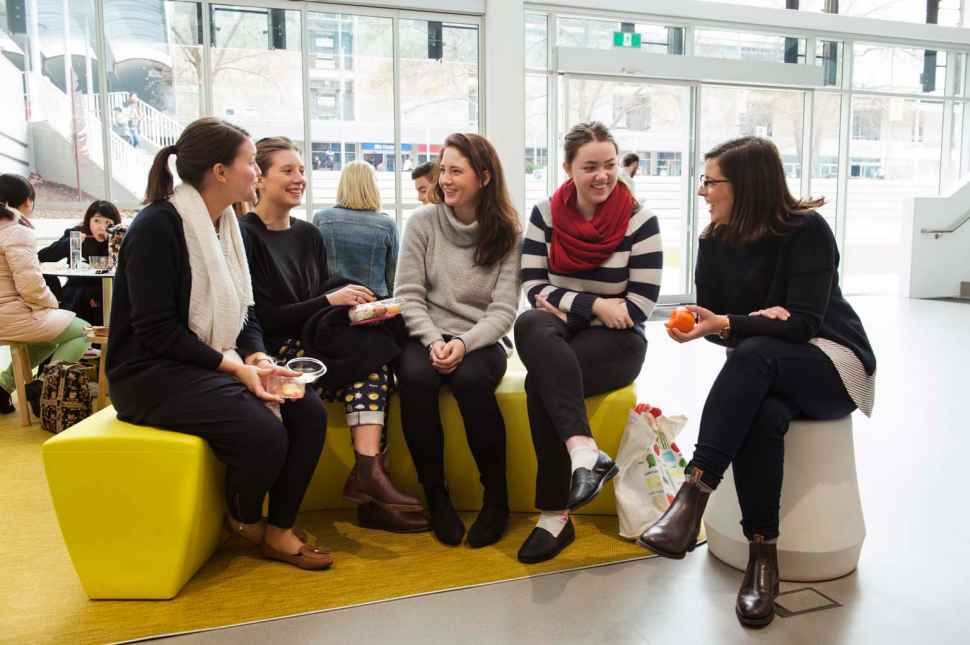A new notification
Notification
IMPROVING CARE AT THE END OF LIFE IS EVERYONE'S BUSINESS
Embedding end of life care into the usual practice of all healthcare professionals in acute hospitals is a goal of Flinders palliative care graduate Alison Hession.
A nurse by background, Alison sees the importance of all health professionals, including nurses and allied health practitioners, to build the skills and practice needed to care for someone in their dying days.
Her interprofessional collaborative approach to working with dying patients, and their families and carers is one gained through postgraduate studies at Flinders University.
Alison completed the Master of Palliative Care in 2019, allowing her to advance her clinical practice and become better prepared for dying patients and their carers.
During completion of the course, she was employed as a Palliative Care Clinical Nurse Consultant (Grade 2) at the Hornsby Ku-ring-gai Hospital in northern Sydney and remains in this position.
“Completing my Masters degree has made me more aware of the need for collaboration and how to effectively plan and implement a project,” Alison says.
“I have also gained a new outlook on the benefits of postgraduate study, not just in the gaining of knowledge but how to translate knowledge into practice.”

Alison Hession, Master of Palliative Care graduate
“Completing my Masters degree has made me more aware of the need for collaboration and how to effectively plan and implement a project...
“I have also gained a new outlook on the benefits of postgraduate study, not just in the gaining of knowledge but how to translate knowledge into practice.”
Her greatest career accomplishment so far has been establishing an in-patient palliative care service at the Hornsby hospital to ensure the comfort of patients at the end of life.
Alison generates a rapport with families and carers to help bring them into conversations with the multidisciplinary team of healthcare professionals which might include nurses, occupational therapists, physiotherapists, speech pathologists, social workers and dietitians.
“In a recent audit we have shown that prior to the implementation of this palliative care service only 26% of patients who died in hospital were seen by a palliative care team, an in-reach team at the time,” she says.
“Three years later, over 50% of patients are reviewed and have a plan in place for end of life care.”
Alison’s commitment to collaboration and teamwork earnt her the Northern Sydney Local Health District’s (NSLHD) Exceptional Person Award in 2019.
“My masters degree has provided me with a sound foundation in the principles and practice of palliative care and the research and subjects have been vital to my ability to be able to develop the in-patient palliative care service we provide,” she says.
“I use these skills daily as I collaborate with all departments across the hospital to ensure that we are providing quality palliative and end of life care.”
“I am inspired by all the people I work with in the NSLHD Palliative Care Network, everyone brings a different interest in palliative care to their daily work which means I am constantly learning and adapting.”
At the time when Alison was considering postgraduate study in palliative care, she says Flinders University was the only institution she could find that offered a comprehensive range of courses on the topic.
“My memory of study at Flinders is that I always received support and encouragement when needed, and that the tutors were all very enthusiastic about their work,” she says.
“I feel very connected to the palliative care department at Flinders University. The courses they provide are accessible for all healthcare professionals, not just nursing.”
Contact us
We offer one-on-one appointments with our prospective student team to discuss career options, pathways, and course and entry requirements.
You might also be interested in
![]()
Sturt Rd, Bedford Park
South Australia 5042
South Australia | Northern Territory
Global | Online
CRICOS Provider: 00114A TEQSA Provider ID: PRV12097 TEQSA category: Australian University











